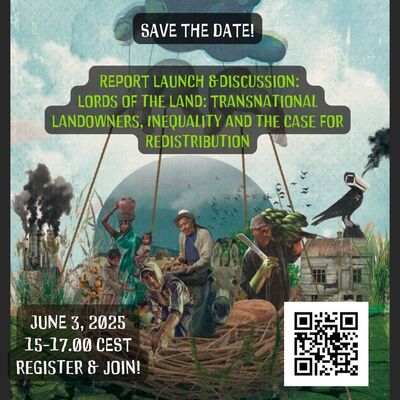Anchor Marco Werman speaks with Ruth Meinzen-Dick, a Senior Research Fellow at the International Food Policy Research Institute, about the downside of land deals between countries.
The farner’s union claims that the Malibya deal was done behind closed doors and then presented as a fait accompli, a deal that effectively hands over control of Mali’s main rice growing region to a foreign power.
Saskatchewan has some of the richest and least expensive farmland in the world, and there's a gigantic pool of global money that would like to buy up as much of it as they can.
- Globe and Mail
-
24 November 2010
Global investment funds have sunk as much as $20-billion (U.S.) into farmland, last year alone they bought 111 million acres of farmland.
- Globe and Mail
-
24 November 2010
The UAE and Saudi Arabia will continue to invest in acquiring farmland abroad as part of their strategy to secure food supplies.
Government has taken action to resolve lingering speculation and strengthen transparency surrounding the degree of foreign ownership in Australian agriculture.
- Stock & Land
-
24 November 2010
Ethiopians do not need multinational food companies to improve their livelihood.
- Anyuak Media
-
24 November 2010
Egyptian officials in September revived a 30-year-old agreement with Sudan that encourages private companies to plant wheat in northern Sudan.
Agricultural groups have opposed the cabinet's decision to remove the barrier on farm land purchases, arguing that Czech farmers will be priced out.
The Abu Dhabi Development Fund eyes the opportunity to invest in Bulgarian agriculture.
- Novinite
-
24 November 2010
“There are people that are dying to invest large sums of money to acquire farmland in Canada that aren't Canadian citizens,” says Jan Kaminski, founder of Bonnefield.
- Globe and Mail
-
24 November 2010
Saudi Arabia has created a government company for agricultural investment abroad as the kingdom phases out local wheat production.
- Zawya Dow Jones
-
24 November 2010





